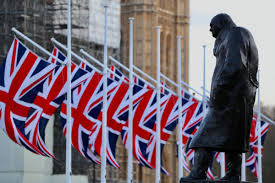The Morality of Councils: Flags, Priorities, and Common Sense
Section 1 - Header
Section 2 - Top 100 Rating
You must be logged in to rate.
Section 4 - Detailed Info
Across the UK, many local councils seem to have lost their way. At a time when residents are crying out for effective management of core services — bins collected, roads repaired, housing delivered, care provided — too many councils appear obsessed with the politics of flags.
We’ve seen it repeatedly: the Union Jack, our national flag, is questioned, restricted, or outright banned in certain places, while other flags — Palestinian, Gay Pride, Israeli, Pakistani, and more — are permitted to fly with impunity.
This raises an obvious question: if councils cannot apply common sense to something as simple as a flag, how can they be trusted to manage the complex, costly, and critical services on which millions rely?
The hypocrisy is staggering. Councils justify selective flag bans in the name of “inclusion” or “neutrality,” yet their actions reveal political bias and double standards. Instead of uniting communities under a national symbol that represents everyone, they fracture trust by picking favourites.
It also exposes a deeper issue — misplaced priorities. Why are taxpayer-funded councils embroiled in symbolic battles while potholes deepen, rubbish piles up, planning systems stagnate, and social care buckles?
Local government exists to serve people, not play political games. When councils indulge in petty “hissy fits” over flags, they not only look foolish, they undermine public confidence in their ability to do the job they’re actually paid for.
At its core, this isn’t about one flag versus another. It’s about morality, responsibility, and leadership. A council that cannot stand by its own national flag, while allowing others to fly freely, sends a message: politics matters more than service, ideology more than duty, division more than unity.
And if that’s the standard of decision-making in the small things, what faith can we possibly have in their ability to handle the big things?
Section 6 - Next Steps
Section 7 - Location
Section 8 - Interest Areas
Section 10 - Contact Details
Section 11 - Listing Reviews
Login to Write Your ReviewThere are no reviews yet.



